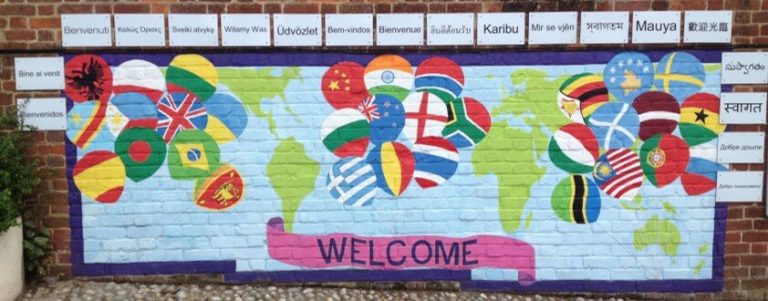A forum that encourages partnerships between schools, potential for projects that are not necessarily focussed on your own school and encourages Blue Sky thinking; nothing is “off the table” when it comes to fresh ideas, approaches and innovation.
#157
Enhanced Primary Inclusion Champions (EPICs)
A programme of training, support and focused time for primary school staff to collaborate and improve their inclusion development plans.
Audience
Head Teachers / School Leaders, Local Authorities, School Teachers, TrustsAimed at
KS1, KS2Outcome
Inclusion and SEND, Mental Health and WellbeingApproach
Whole SchoolWhy was the project needed?
Exclusion rates in some primary schools remained at a concerning level. Schools fed back that they had little capacity for a staff member to dedicate enough time to develop and implement inclusion plans in their school.
What happened and what was the impact?
We invited schools to apply for funding for Enhanced Primary Inclusion Champion (EPIC) roles, allowing them to add capacity to enable a named member of staff to develop a school implementation plan to support inclusion. Schools were encouraged to view it as a professional development opportunity for a member of teaching staff to work alongside the Senior Leadership Team (SLT). Funding was paid for one day per week release time for the member of staff plus an uplift to be paid at the head teacher’s discretion.
Primary schools were invited to complete an Expression of Interest form for the EPIC role, outlining the biggest challenges they faced in reducing Fixed Term and Permanent Exclusions, how they had made use of Norwich Opportunity Area (NOA) offers to mitigate the risks of exclusion, potential use of continuing professional development (CPD) funding and current attendance at NOA inclusion meetings.
A panel assessed the forms and awarded funding to schools who met the criteria and signed a Memorandum of Understanding (MOU) document.
The MOU outlined the responsibilities of schools and the NOA and reporting and funding plans.
All EPICs attended Implementation Plan Training with the Norwich Research School and participated in half-termly meetings with the NOA and EPICs from other schools.
What did and didn't work?
A regular, agreed period of non-teaching time for EPICs provided schools with an opportunity to focus on improving their own implementation and development plans in relation to inclusion, as well as the opportunity to work with other schools to improve outcomes.
A strong team was formed, which made for open and honest conversations within the group and a great sense of empathy and trust was built. Despite Covid-19 restrictions the group continued to commit to dedicated time for school inclusion planning. Collectively the group have identified needs that have formed the NOA programme overall.
Key learning points:
- Plan ahead a programme of themes for half-termly meetings that encourage school leadership and contributions and include key external speakers.
- Confirm a lasting Chair for the group.
- Encourage more frequent sharing of school data.
How did you measure success?
EPICs report a reduction in exclusion rates for their individual schools and report on progress against the Inclusion Plan for their school.
Wisdom
Ingredients For Success
Is the Project Complete or Ongoing
The NOA EPIC project is now complete.
How is the Project Sustainable
Implementation Plans, that individual EPICs have produced, form part of the whole school’s Development Plan and will evolve to respond to emerging needs.
What are the Long Term Impacts
Most significantly, the legacy of the EPIC project is the additional knowledge of inclusion, experience of implementing change around inclusive practices and the use of this expertise in continuing to review school’s Inclusion Plans regularly.
Estimated Costs
The costs per school were approximately £14,000 for 1 academic year.
Carrying out the EPIC role has enabled me to develop my role in school from being leader of SEND towards a broader role leading on inclusion. This is supporting us to develop more joined up ways of thinking and working across (and beyond) the school. Focusing more closely on supporting the most vulnerable children has provided the impetus for working backwards to look at earlier intervention and backwards again to look at universal provision, creating a more inclusive culture in the school.
The EPIC project, which was specifically designed to give time for focusing on inclusion, is valuable because of its flexibility; within the broad parameters of the Inclusion Charter, I was able to grow my own understanding of what really matters to our school. Even when we were subsequently thrown into unknown territory, having that focus ensured we continued to support our school in the right ways.
Feedback from teachers involved in the EPIC ProjectArea Most Impacted
Mental Health
Inclusion
Transition
Next steps to do something similar yourself
These are a list of Big Idea resources that you can use to implement in your setting:
We asked EPICs to use the EEF implementation guide in their work:
Norwich Research School supported us with this project, for more information take a look at their website:
This is an updated version of the Inclusion Charter in 2021, check out the Norwich Inclusion Charter Big Idea to see how this was developed:
Read the EEF Guidance Report on Social and Emotional Learning here
Read the EEF Guidance Report on Improving Behaviour here
Read the EEF Guidance Report on SEND in Mainstream Schools here
Champions and contacts
Authors
Hub Contact Details
Magdalen Gates Primary School, Bullclose Road
Norwich, Norfolk
NR3 1NG



If you've got any thoughts and ideas of how this approach could be improved or an positive impact it's had for you, add them below
Login or register now to post any comments